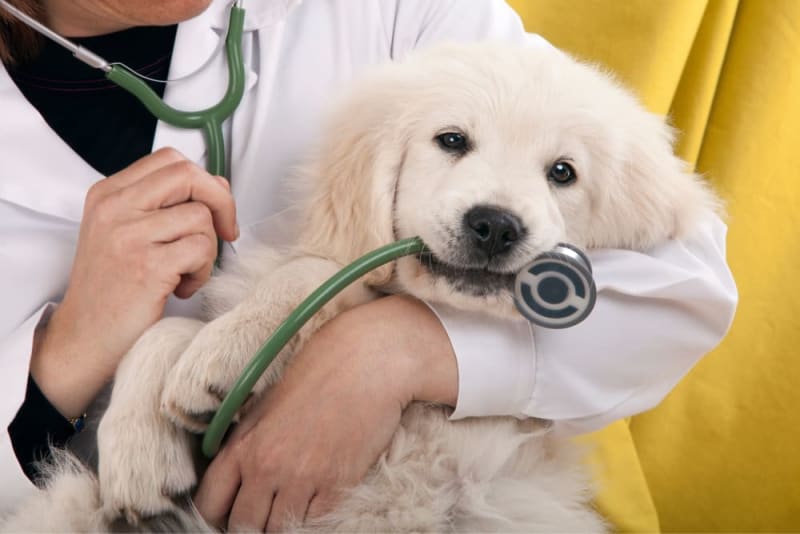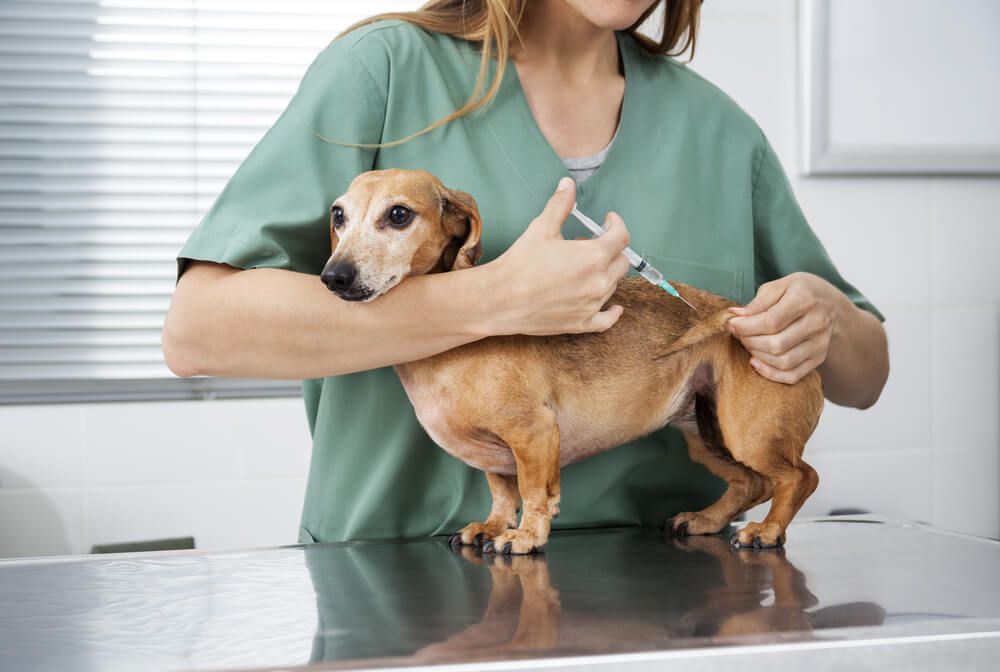Puppy vaccination is one of the most important things that you should consider when you bring a new puppy home. Vaccinations help to protect your furry friend from various diseases that could potentially cause serious illness or even death. Vaccines work by triggering the immune system to produce antibodies that fight against specific diseases. In this article, we will provide a detailed description of the puppy vaccination schedule.

When should you start vaccinating your puppy?
Puppies typically receive their first vaccine at six to eight weeks of age. Prior to this age, puppies receive antibodies from their mother’s milk, which helps to protect them from disease. However, as they grow older, these antibodies start to wear off, leaving them vulnerable to diseases. This is why it is important to start vaccinating your puppy at the right time.
What vaccines does your puppy need?
There are many vaccines that your puppy may need, depending on various factors such as age, breed, lifestyle, and region. Some of the most common vaccines that puppies receive include:
- Canine distemper vaccine – This vaccine protects your puppy from a serious viral disease that affects the respiratory, gastrointestinal, and nervous systems.
- Canine parvovirus vaccine – This vaccine protects your puppy from a highly contagious viral disease that causes severe vomiting and diarrhea.
- Canine adenovirus (hepatitis) vaccine – This vaccine protects your puppy from a viral disease that affects the liver and can cause severe illness or death.
- Canine parainfluenza vaccine – This vaccine protects your puppy from a viral disease that causes respiratory infections.
- Rabies vaccine – This vaccine protects your puppy from a deadly viral disease that affects the central nervous system and is transmissible to humans.
Your veterinarian will help you determine which vaccines your puppy needs based on their lifestyle and the specific risks in your region.

Puppy vaccination schedule
The puppy vaccination schedule typically involves a series of vaccinations administered at specific intervals. The vaccination schedule may vary depending on various factors such as the vaccine type and the puppy’s age. Here is a general guideline for the puppy vaccination schedule:
- 6-8 weeks: The first vaccine is usually given at six to eight weeks of age. This vaccine typically includes the distemper, parvovirus, and adenovirus (hepatitis) vaccines.
- 10-12 weeks: The second vaccine is given at 10 to 12 weeks of age. This vaccine typically includes the distemper, parvovirus, adenovirus (hepatitis), and parainfluenza vaccines.
- 14-16 weeks: The third vaccine is given at 14 to 16 weeks of age. This vaccine typically includes the distemper, parvovirus, adenovirus (hepatitis), parainfluenza, and rabies vaccines.
- 1 year: After the initial series of vaccines, your puppy will need a booster shot one year later to maintain immunity.
- Every 1-3 years: Depending on the vaccine type, your puppy may need booster shots every one to three years to maintain immunity.
It is important to note that the above schedule is a general guideline, and the vaccination schedule may vary depending on the vaccine type and your puppy’s specific needs. Your veterinarian will help you determine the best vaccination schedule for your puppy.
Possible side effects of puppy vaccinations
Some puppies may experience mild side effects after receiving vaccinations. These side effects may include:
- Mild fever
- Lethargy
- Loss of appetite
- Swelling around the injection site
- Mild vomiting or diarrhea
These side effects are usually mild and go away on their own within a few days. If your puppy experiences any severe or persistent side effects, contact your veterinarian immediately.

Puppy vaccination is an essential aspect of responsible pet ownership. Vaccines help to protect your furry friend from various diseases that could potentially cause serious illness or even death. When vaccinating your puppy, it is important to follow the recommended vaccination schedule and to work with your veterinarian to determine which vaccines your puppy needs based on their lifestyle and the specific risks in your region. By vaccinating your puppy, you are helping to ensure their health and happiness for years to come.

